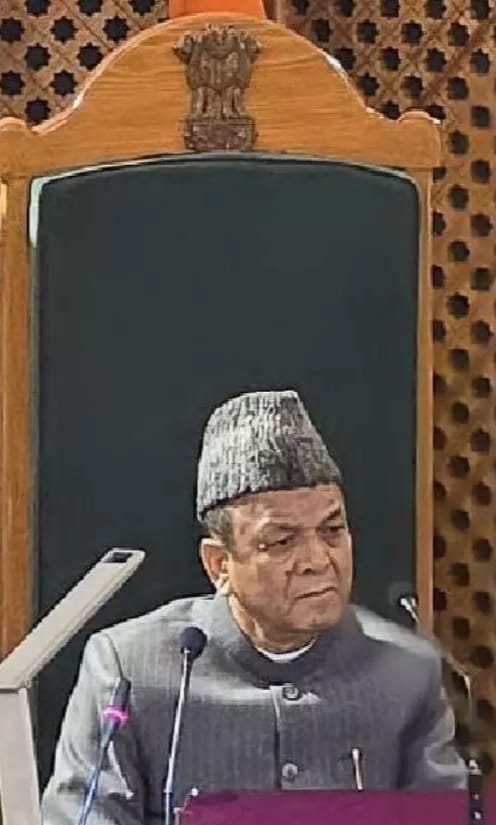Calls It Unconstitutional Interference in Religious Affairs
Diplomat Correspondent
Srinagar,(DD): Jammu and Kashmir Assembly Speaker Abdul Rahim Rather has strongly opposed the Waqf (Amendment) Bill, 2025, calling it a violation of constitutional rights and an unjustified interference in religious matters. He asserted that the bill undermines the autonomy of Waqf properties and infringes upon the religious freedoms guaranteed by the Constitution.
Addressing the media in Srinagar, Rather criticized the bill for allegedly violating Article 25, which ensures the Right to Religion. “No one should interfere in religious or personal matters,” he stated, cautioning that any attempt to sideline constitutional protections in the name of reform could have serious consequences. He argued that the government’s intervention in Waqf affairs is unwarranted and sets a troubling precedent for religious institutions across the country.
The Waqf (Amendment) Bill, 2025, was introduced in Parliament on Wednesday and passed after an intense, hours-long debate. The BJP-led NDA government has defended the amendment, claiming it aims to improve transparency and accountability in Waqf management. However, opposition leaders, including Rather, have raised concerns that the move is an attempt to weaken Muslim institutions and centralize control over religious endowments.
Critics argue that the bill grants the government excessive authority over Waqf boards, diminishing their independence. Many religious scholars and legal experts have also expressed concerns over how the amendments might alter the traditional governance of Waqf properties, which are meant to serve the welfare of Muslim communities.
The passage of the bill has sparked strong reactions, with protests and legal challenges expected in the coming days. Several opposition parties and religious organizations are reportedly planning to challenge the bill in court, arguing that it contradicts the fundamental principles of religious autonomy and constitutional rights.
With tensions rising over the issue, political analysts predict further debates and possible street demonstrations in various parts of the country, particularly in regions with significant Waqf assets. Whether the government will address these concerns or move forward with implementing the changes remains to be seen.(DD)



